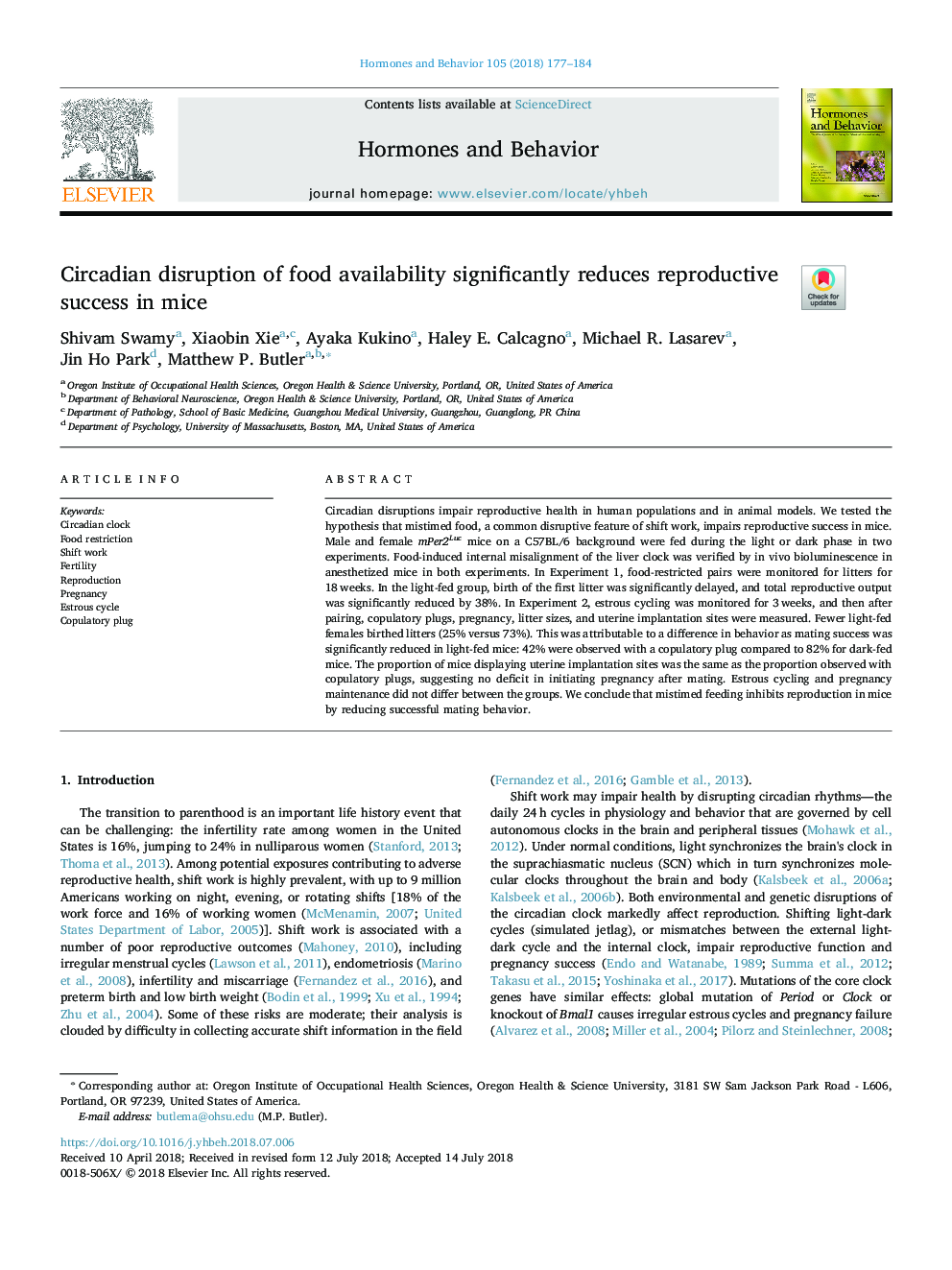| Article ID | Journal | Published Year | Pages | File Type |
|---|---|---|---|---|
| 11001439 | Hormones and Behavior | 2018 | 8 Pages |
Abstract
Circadian disruptions impair reproductive health in human populations and in animal models. We tested the hypothesis that mistimed food, a common disruptive feature of shift work, impairs reproductive success in mice. Male and female mPer2Luc mice on a C57BL/6 background were fed during the light or dark phase in two experiments. Food-induced internal misalignment of the liver clock was verified by in vivo bioluminescence in anesthetized mice in both experiments. In Experiment 1, food-restricted pairs were monitored for litters for 18â¯weeks. In the light-fed group, birth of the first litter was significantly delayed, and total reproductive output was significantly reduced by 38%. In Experiment 2, estrous cycling was monitored for 3â¯weeks, and then after pairing, copulatory plugs, pregnancy, litter sizes, and uterine implantation sites were measured. Fewer light-fed females birthed litters (25% versus 73%). This was attributable to a difference in behavior as mating success was significantly reduced in light-fed mice: 42% were observed with a copulatory plug compared to 82% for dark-fed mice. The proportion of mice displaying uterine implantation sites was the same as the proportion observed with copulatory plugs, suggesting no deficit in initiating pregnancy after mating. Estrous cycling and pregnancy maintenance did not differ between the groups. We conclude that mistimed feeding inhibits reproduction in mice by reducing successful mating behavior.
Keywords
Related Topics
Life Sciences
Biochemistry, Genetics and Molecular Biology
Endocrinology
Authors
Shivam Swamy, Xiaobin Xie, Ayaka Kukino, Haley E. Calcagno, Michael R. Lasarev, Jin Ho Park, Matthew P. Butler,
